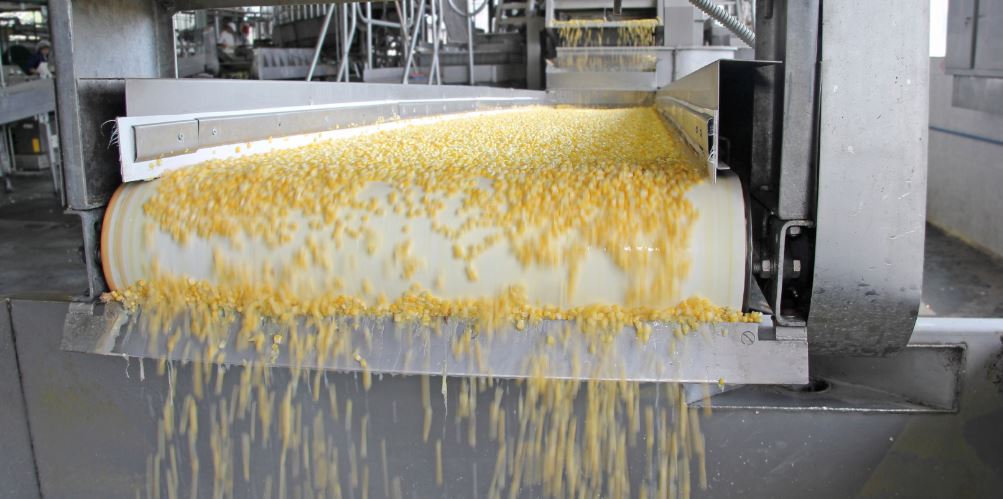Introduction
In the extremely controlled food market, agreement manufacturers play a crucial role in bringing products to market. These companies concentrate on producing as well as packaging food products in support of various other companies, enabling brand names to focus on advertising and marketing as well as distribution. Nonetheless, contract suppliers have to navigate a complex landscape of food labeling demands to guarantee compliance with Australian regulations. This article gives understandings and also guidance for agreement manufacturers running in Australia, covering topics such as contract food manufacturing, food safety requirements, labeling requirements, as well as more.
Contract Food Manufacturing: Meeting the Need for Outsourcing
Contract food manufacturing has actually come to be increasingly preferred over the last few years as companies aim to outsource their production needs. This setup allows firms to leverage the proficiency and resources of specialized suppliers while concentrating on their core competencies. In Australia, contract food manufacturing is a growing market, with companies offering a variety of solutions, consisting of item growth, solution, product packaging, and also high quality control.

Understanding Food Safety and security Requirements in Australia
Food safety is of critical importance in the agreement production sector. Agreement manufacturers must abide by strict guidelines to make sure the safety and security and also honesty of the products they produce. In Australia, these criteria are established by Food Standards Australia New Zealand (FSANZ) as well as enforced by state and also territory governing authorities.
The Excellent Manufacturing Practices (GMP) standards offer a structure for guaranteeing that foodstuff are made constantly as well as fulfill top quality criteria. Contract manufacturers have to carry out durable quality control systems to follow Extra resources GMP demands. This involves establishing procedures for component sourcing, production processes, storage, dealing with, product packaging, labeling, and distribution.
Meeting Labeling Demands: Key Considerations
Accurate and insightful labeling is necessary for ensuring customer safety and advertising transparency in the marketplace. Agreement suppliers should acquaint themselves with Australian labeling requirements to prevent costly errors or potential legal concerns. Right here are some essential considerations when it concerns food labeling in Australia:
1. Obligatory Label Information
Australian food labeling laws require certain info to be shown on product tags. This includes the product name, components listing, irritant information, dietary details, and also country of origin. Agreement manufacturers should make sure that all necessary tag info is exact as well as plainly legible.
2. Allergen Management
Allergen monitoring is an important aspect of food labeling in Australia. Agreement suppliers need to have durable systems in position to avoid cross-contamination and precisely state the visibility of allergens on product labels. This includes performing thorough threat assessments, implementing segregation steps, as well as routinely testing for allergen traces.

3. Nutritional Information
Nutritional information is an important consideration for consumers when making investing in decisions. Australian food labeling regulations need agreement producers to provide accurate as well as standardized dietary information on their items. This includes the power value (calories), protein content, fat content, carbohydrate web content, and also any kind of other relevant nutrient information.
4. Country of Origin Labeling
Country of origin labeling is another requirement that agreement makers need to adhere to in Australia. This includes plainly showing the nation or nations where the product was made or expanded. The Australian Competition and also Customer Payment (ACCC) gives guidelines on exactly how to meet native land labeling requirements.
5. Health Claims and also Advertising and marketing Messages
Contract suppliers must also be aware of the rules bordering wellness insurance claims and also advertising and marketing messages on food labels. In Australia, any type of claims made concerning the wellness advantages or properties of a product must be sustained by scientific evidence as well as follow specific regulations set by FSANZ.
FAQs: Usual Inquiries Regarding Food Identifying Demands in Australia
What are the consequences of non-compliance with food labeling demands in Australia? Non-compliance with food labeling requirements can lead to legal penalties, consisting of fines or item recalls. It can additionally harm a brand name's track record and erode customer trust.
Are there certain labeling requirements for health food products in Australia? Yes, organic food items have additional labeling demands in Australia. They must be licensed by a recognized organic certifier and display the appropriate accreditation logo.
Can contract manufacturers assist with item development and also solution? Yes, lots of contract makers provide item growth and solution services. They can help in developing customized formulations that fulfill details dietary or nutritional requirements.

What is the function of contract suppliers in ensuring food safety? Agreement suppliers are accountable for implementing durable food safety and security systems, including GMP guidelines, to ensure the safety and security as well as stability of the products they produce.
Are there any kind of exceptions to food labeling demands for local business? Small companies may be qualified for sure exemptions or streamlined labeling demands. Nevertheless, it is very important to seek advice from regulatory authorities or seek legal advice to identify eligibility.
How can acquire producers remain upgraded on adjustments to food labeling laws? Agreement makers ought to regularly monitor updates from FSANZ and also various other regulative bodies. They can likewise engage with market organizations and also participate in appropriate workshops or workshops to stay informed.
Conclusion
Navigating food labeling requirements in Australia is an intricate job for contract suppliers. Compliance with laws is important to guarantee consumer security and also keep rely on the market. By understanding the vital considerations described in this post, agreement makers can browse the regulative landscape efficiently while delivering top quality products that satisfy market requirements. Partnering with seasoned professionals that focus on food labeling and compliance can additionally boost a contract maker's ability to satisfy these demands successfully.